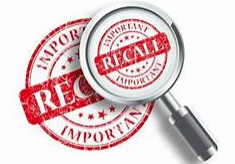I’ve got a lot of stuff in my office. Your house is filled with a lot of things you might not need. And then there’s that lot# on your beverage can. But what is a lot and why does it matter? How can something as arbitrary as a “lot” have real importance in our everyday lives? In the English language the word “lot” is used for describing a large quantity of items or some grouping or set of items. In operations we define “lots” as groups of goods received or produced.
The purpose of the lot is to allow us to quickly and easily identify those items which have a relationship to each other in a more efficient way than tracking every unique item, which if you think about it clearly won’t work at scale:
- A warehouse has 20,000 cases of golf balls.
- Each case has 48 dozen balls.
- That’s 11,520,000 balls.
If every ball is a lot, nothing is a lot. There’s no grouping. If all 20,000 cases are a lot, that might work better but might also miss important details, like the 20,000 cases represent 4 different models and were produced across 2 years. They have a relationship to each other in that they are all golf balls, but from the sense of a business relationship there’s not much there. It’s like saying you and I are related because we both have a laptop.
- If each ball costs $1.45 to manufacture, that’s $16,704,000 of product.
- In the event of complaints about defective balls, do you want to lose almost $17 million because you can’t tell them apart, or would you rather it is something less than that?

So, “lot management” is about creating related sets of goods we receive or produce. Likewise, “Lot tracking and lineage” is about creating a related set of business-driven relationships between our lots and our processes.
A fast food restaurant stocks a 3-day supply of ground beef for burgers. They sell 1000 burgers a day at an average of 6 dollars per burger. If they must throw out all the meat because of contamination, assuming they can’t differentiate between the patties, that’s upwards of $18,000-$20,000 in lost sales PLUS the cost of the meat, maybe another $10,000. There’s also the additional loss related to reputation, after all are you going back there? And as for the producer who shipped the patties, well perhaps they shipped to that store and 100 others. And maybe the ingredients to the patties from this producer came from an establishment that supplies 20 other producers of equal size. You do the math. It adds up fast, and you know this is real because food recalls have been in the news quite a bit lately.
As a manufacturer, your reputation is in the hands of your suppliers as much as it is your own, and too often we see lot lineage fall to the wayside as we’re scrambling to get our goods out the door. “Well I’ve got some stuff left over from the last job, let’s just use that so I don’t have to break a new pallet.” This might be fine if you record it (increased contamination exposure aside), but if you get lazy or rushed and don’t record these last bits in your current production, after all from an accounting standpoint maybe you issued it all into the last job so inventory costs are covered, you’ve now created a scenario where you do not have positive lineage into your production process and thus an undetermined amount of exposure for you and your customers with possibly no recourse back to suppliers.
Let look at one final scenario recognizable to us all:
A supermarket has a 200lbs of ground beef in the cooler. A customer comes to the customer service desk with a package that looked fine but when they opened it, it smells awful. What does the supermarket do?
It’s the difference between losing a little money or a LOT. It’s the difference between getting reimbursed … or NOT. It might even be the difference between staying in business or NOT.
Click here to learn more about QueBIT's Product ReQALL solution.
Check out QueBIT’s upcoming webinar - Surlean Foods tackles food safety in real-time using Cognos Analytics 11 on Thursday, June 13th. Register today!